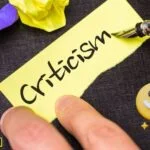Future Self Investment
In a world characterized by rapid change and evolving challenges, the concept of investing in one’s future self has become increasingly relevant. This idea transcends traditional financial investments; it encapsulates a holistic approach to personal development, emphasizing the deliberate actions taken today to ensure a prosperous and fulfilling tomorrow. By consciously prioritizing investments in areas such as education, health, relationships, and career development, individuals can cultivate the necessary skills and resources to thrive in an uncertain future.
The importance of future self investment lies in its ability to empower individuals to take charge of their destinies. As society progresses, the need for adaptability and continuous learning has become paramount. Actions taken today—whether acquiring new knowledge, fostering meaningful connections, or adopting healthy habits—can significantly shape the trajectory of our lives. This proactive approach encourages individuals to envision their future selves and devise actionable strategies to become the version of themselves they aspire to be.
Moreover, investing in oneself also brings forth the notion of accountability. When individuals actively engage in personal development, they foster a sense of responsibility towards their choices and the impact these choices have on their future. This enhanced awareness spurs motivation and resilience, enabling individuals to navigate challenges more effectively. As the pace of life accelerates and the uncertainties of the future loom closer, prioritizing future self investment can transform not only personal aspirations but also their outcomes.
To conclude, investing in your future self is an essential endeavor that warrants attention. This investment is a strategic approach to shaping a brighter tomorrow, ensuring that the actions taken today resonate positively throughout one’s personal and professional life. By understanding its importance, individuals can embrace this philosophy to unlock their potential and create a more fulfilling future.
Understanding the Concept of Future Self
The notion of the future self encompasses a rich interplay between psychology and philosophy, exploring how individuals perceive their future selves and the implications of this perception on present behavior. This concept posits that people often visualize a version of themselves that exists in the future, and this mental image can significantly influence current decision-making and life satisfaction.
Psychological research suggests that envisioning one’s future self promotes a sense of connectedness across time. This connection encourages individuals to engage in behaviors today that are beneficial for their future. For instance, research conducted by psychologists like Hal Hershfield has demonstrated that individuals who actively consider their future self are more likely to save for retirement or pursue healthier lifestyle choices. Such studies reveal that individuals who personalize their future selves, making them feel more real and relevant, exhibit heightened motivation to engage in actions that enhance their long-term well-being.
Moreover, the concept of temporal discounting elucidates how people often prioritize immediate gratification over long-term benefits. This phenomenon highlights the fundamental struggle between present desires and future aspirations. When individuals fail to adequately acknowledge their future selves, they may neglect necessary investments in health, career, or financial security. Conversely, fostering a perspective that values the future self can lead to improved life satisfaction and fulfillment. It encourages reflective thinking and forward planning, ultimately bridging the gap between current actions and future outcomes.
In conclusion, understanding the psychological and philosophical dimensions of the future self enables individuals to better navigate their paths toward a fulfilling life. By recognizing the potential of their future selves, individuals can adopt strategies that align their present choices with their long-term objectives.
The Power of Positive Actions and Their Impact
Engaging in positive actions plays a crucial role in shaping personal growth and fostering the development of constructive habits. Research supports the idea that small, consistent behaviors can lead to significant changes over time. This phenomenon can be understood through the lens of habit formation, which posits that repeated actions create neural pathways in the brain, making it easier for individuals to adopt and maintain such behaviors.
Throughout various studies, it has been reported that even minor positive actions, such as daily gratitude exercises or healthy lifestyle choices, can yield noticeable improvements in one’s well-being. When individuals commit to making small, positive changes in their routines, they initiate a cumulative effect that leads to the cultivation of constructive habits. These habits, however insignificant they may seem initially, snowball over time, ultimately contributing to the achievement of long-term goals.
The relevance of positive actions extends beyond mere physical changes; they also impact an individual’s mindset. By focusing on constructive behaviors, individuals can shift their thought patterns toward optimism and resilience. This mental shift can enhance the perception of one’s potential, thereby encouraging further positive actions. Consequently, this cycle of positivity fuels higher levels of motivation, resulting in a chain reaction that can result in profound transformations in various aspects of life, including personal and professional pursuits.
It is essential to recognize that the journey toward self-improvement does not require grand gestures. Instead, embracing the concept that every small act contributes to a larger goal can empower individuals to stay committed to their personal development. As these positive actions accumulate, they pave the way for a brighter, more fulfilling future, reinforcing the importance of investing in one’s future self through mindful behaviors, ultimately leading to greater success and satisfaction in life.
Setting SMART Goals for the Future
Setting achievable goals is a crucial step in investing in your future self. The SMART framework, which stands for Specific, Measurable, Achievable, Relevant, and Time-bound, provides a structured approach to goal setting that enhances clarity and focus. By applying this method, individuals can identify their aspirations and break them down into actionable steps that lead towards their desired outcomes.
To begin, a specific goal clearly defines what you want to accomplish. Instead of saying, “I want to save money,” a specific goal would be, “I want to save $5,000 for a down payment on a house.” This precision enables a clearer understanding of the objective and motivates progress. The next step involves measuring your progress. By establishing measurable criteria, you can track your advancements, ensuring that you remain on the right path. For instance, saving a specific amount monthly would serve as a quantifiable metric.
Achievability is another vital component of SMART goals. It is imperative to set realistic goals that take into account your current resources and constraints. Goals should stretch your abilities without being unattainable; this balance reinforces motivation and ensures steady progress. Furthermore, relevance emphasizes the importance of aligning your goals with your broader life objectives. Each goal should connect to your personal vision for the future to maintain long-term motivation.
Finally, a time-bound aspect of goal setting introduces a deadline, fostering accountability. By determining a specific timeframe, such as “I will achieve my savings goal by December 2025,” you create a sense of urgency that can spur action. In essence, setting SMART goals effectively dismantles broad aspirations into manageable, actionable tasks, ultimately guiding you toward a brighter tomorrow.
Habit Formation: Building a Strong Foundation
Habit formation is a crucial pillar for investing in one’s future self. The process of forming habits hinges on a psychological framework known as the habit loop, which consists of three key components: cue, routine, and reward. A cue is a trigger that initiates the behavior, the routine is the behavior itself, and the reward is the positive outcome that reinforces the habit. Understanding this loop is essential for cultivating good habits that lead to long-term success.
Establishing good habits begins with consistency. Research in the field of psychology suggests that the more consistently a behavior is performed, the more automatic it becomes over time. This automaticity allows individuals to allocate mental resources to other tasks, enhancing productivity and efficiency. To build consistency, one should start with small, manageable changes that can be integrated into daily routines. Gradually increasing the complexity or intensity of these changes fosters a stronger connection to the desired behavior.
To further enhance habit formation, employing strategies such as setting clear intentions, tracking progress, and practicing self-reflection can prove beneficial. Clear intentions lead to better decision-making, as they outline specific goals and processes. Meanwhile, tracking progress can help maintain motivation by providing tangible evidence of one’s advancements. Lastly, self-reflection allows individuals to evaluate what works and what may need adjustment in their habit-forming journey, facilitating a more personalized approach.
Creating effective habits, therefore, serves as a foundation for achieving future objectives. As individuals commit to daily practices that align with their long-term goals, they cultivate resilience and adaptability, essential traits for navigating life’s uncertainties and building a fulfilling future.
Cultivating Resilience to Overcome Challenges
Resilience is a critical life skill that enables individuals to confront and overcome adversity. It encompasses the ability to adapt to challenging circumstances and maintain a level of psychological well-being despite encountering difficulties. Developing resilience not only strengthens one’s ability to navigate setbacks but also plays a crucial role in personal growth, helping individuals stay aligned with their future goals.
One of the fundamental aspects of resilience is a positive mindset. Individuals who cultivate a healthy perspective are better equipped to view challenges as opportunities for learning and growth. This shift in mindset encourages proactive problem-solving rather than reactive behaviors, allowing people to respond effectively in tough situations. Acknowledging the reality of challenges while maintaining optimism can significantly influence how individuals approach setbacks.
Moreover, resilience is often built through experience. Each encounter with adversity contributes to an individual’s capacity to handle future challenges. The more one faces obstacles, the greater the understanding of personal strengths and weaknesses. This self-awareness serves as a foundation for developing effective coping strategies, fostering a sense of empowerment and confidence. Engaging in reflective practices, such as journaling or meditation, can also amplify this understanding, aiding individuals in recognizing patterns in their responses to stress.
Additionally, seeking support from others is a vital component in cultivating resilience. Building strong, supportive relationships creates a network of resources that individuals can rely on during tough times. Whether through family, friends, or professional support, sharing experiences can lessen feelings of isolation and reinforce a person’s ability to cope with challenges. Thus, resilience is not merely an individual trait but can be nurtured within supportive communities.
By fostering resilience through positive thinking, experiential learning, and utilizing supportive relationships, individuals can effectively navigate their journeys toward personal and professional success. This foundational skill will ensure that they remain steadfast as they strive toward a brighter future.
The Role of Mindfulness in Future Self Investment
Mindfulness plays a crucial role in the investment of one’s future self by fostering awareness of thoughts, emotions, and actions. This practice encourages individuals to remain present and fully engaged in the moment, allowing for informed decision-making that aligns with their long-term goals and aspirations. By cultivating mindfulness, individuals can better understand the consequences of their choices, thereby enhancing the potential for positive future outcomes.
Meditation is one of the most effective techniques for developing mindfulness. Regular meditation practice helps individuals cultivate a focused and calm mind, enabling them to observe their thoughts without judgment. This heightened awareness can lead to an improved recognition of patterns in behavior and thought processes that may hinder personal growth. As individuals begin to recognize these patterns, they can take proactive steps toward altering them, thereby investing in a more favorable future self. Additionally, meditation fosters emotional regulation, which can lead to more rational and thoughtful responses to challenges that arise in everyday life.
Reflection is another powerful tool in the realm of mindfulness. Taking time to contemplate past decisions and their outcomes can provide valuable insights into one’s personal journey. By identifying moments where their actions have positively or negatively impacted their future, individuals can adjust their decision-making strategies. Reflection encourages a deeper understanding of personal values and priorities, ultimately guiding individuals to make choices that resonate with their future ambitions.
Incorporating mindfulness techniques into daily routines also enhances overall well-being. Practicing mindfulness can reduce stress and anxiety, thereby improving mental clarity and focus. This mental clarity is essential for setting realistic goals and maintaining the motivation to achieve them. By consistently practicing mindfulness, individuals can create a solid foundation for the investment in their future selves, leading to a more fulfilling and purpose-driven life.
Investing in Skills and Education for Growth
In today’s rapidly changing job market, investing in skills and education is crucial for personal and professional growth. This investment not only enhances one’s employability but also equips individuals with the necessary tools to navigate the complexities of modern work environments. Continuous learning fosters adaptability, ensuring that employees remain competitive against the backdrop of evolving industries driven by technology and innovation.
There are several types of skills that stand out as particularly beneficial in the current landscape. Technical skills, especially in areas such as data analysis, computer programming, and digital marketing, are in high demand. As businesses increasingly rely on technology, having these skills can give candidates a distinct advantage. Additionally, soft skills like communication, teamwork, and critical thinking have become equally important. Employers value individuals who can not only execute tasks efficiently but also contribute positively to company culture and collaborate effectively with team members.
To facilitate continuous development, individuals should actively seek educational opportunities. This can include enrolling in online courses, attending workshops, or participating in webinars relevant to their fields. Many institutions offer certifications that provide credibility and can enhance one’s qualifications. Networking with professionals in similar fields can also lead to valuable insights and opportunities for mentorship, paving the way for skill enhancement.
Moreover, individuals can explore local community colleges and adult education programs that offer specialized training or degree programs. Many of these institutions cater to working adults, providing flexible schedules that accommodate personal and professional responsibilities. Additionally, organizations increasingly provide access to resources, such as training budgets or tuition reimbursement programs, highlighting the emphasis on employee development. Investing in education and skills is not merely a personal achievement; it is a strategic maneuver that prepares individuals for a successful future.
Your Future Awaits
As we conclude this exploration of investing in your future self, it is essential to reflect upon the core principles that can guide you toward achieving a more prosperous and fulfilling life. The journey of investing in yourself begins with the recognition that the choices made today substantially influence the potential of tomorrow. Prioritizing personal growth, whether through education, financial planning, or cultivating healthy relationships, lays a solid foundation for future success. Every small step taken contributes to the larger narrative of your life, accentuating the significance of commitment and proactive effort in this transformative process.
Moreover, the act of setting clear and achievable goals cannot be overstated. These objectives serve as both a roadmap and a motivational tool, steering your actions and decisions in alignment with your envisioned future. Whether you aim to advance your career, enhance your skills, or improve your physical and mental well-being, the importance of maintaining focus and perseverance is paramount. Investing time in self-reflection, paired with strategic planning, will ensure that you remain oriented toward your aspirations.
Lastly, it is crucial to foster a mindset of resilience and positivity. Challenges are inevitable, but how you respond to them determines your trajectory. Embrace learning opportunities and view setbacks as stepping stones to growth. Surrounding yourself with supportive networks can also bolster your resolve, as collective motivation often leads to greater achievements. As you embark on this journey, remember that your future is a canvas; take the initiative to paint it vibrantly with purposeful actions and unwavering determination. Your future awaits, and it holds immense potential for those who choose to invest wisely in themselves.









